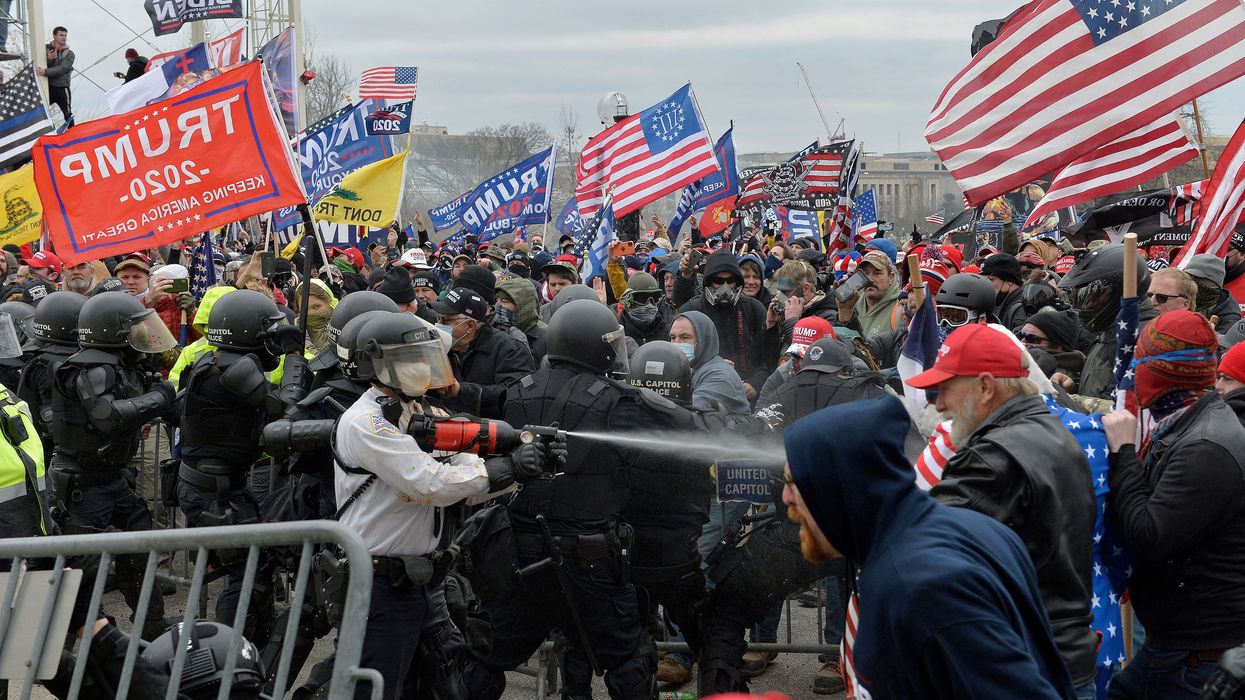© 2024 Blaze Media LLC. All rights reserved.
USA Today: "Abroad, she restored British pride by retaking the Falkland Islands from Argentina, and by linking the new reformist Soviet leader, Mikhail Gorbachev, to her friend and ideological soul mate, Ronald Reagan, who was leading a conservative renaissance in the U.S. at the same time.
"It was a triumph of vision and force of personality that earned her nickname, the Iron Lady. But to stop there fails to recognize another, equally important aspect of Thatcher's success — and of Reagan's.
"Both knew where they wanted to take their nations. But both also were smart enough to play a long game, knowing there are trade-offs to be made along the way. Thatcher, for instance, barely dented Britain's wildly popular national health care system, and she would almost certainly view the rigid, deficit-driving policies of U.S. Republicans with about the same disdain she'd hold for Democrats' lax spending. She was all about responsibility, personal and governmental, which is so sorely lacking today."
TheNew York Times: "Arguably, Mrs. Thatcher’s popular military successes made it easier for Mr. [Tony] Blair to carelessly and recklessly follow George W. Bush into Iraq. But Mrs. Thatcher knew how to stand up to Ronald Reagan when she needed to — for example, over the ill-considered United States invasion of Grenada.
"She was one of the first Western leaders to recognize the reformist intentions of Mikhail Gorbachev, showed remarkable foresight on the dangers of climate change, and in general managed Britain’s global role more deftly than her successors.
Mrs. Thatcher was, without a doubt, a divisive political figure in her day. The passage of time has drained much of the old anger and left behind her record of accomplishments."
TheWashington Post: "Ms. Thatcher, who was raised in the family apartment over her father’s grocery store in Lincolnshire, and who thought that everyday upbringing was an ideal preparation for political life, officially became a lady (a baroness) after she left office. She was pushed out by divisions within her party on several issues, the most important being the rapid pace of European integration, of which she was skeptical. For some years afterward, she continued to write, speak and agitate. The first woman to serve as Britain’s prime minister, she held the post longer than anyone else in the 20th century, and she might have held it even longer, had she been a bit more flexible. But then of course she wouldn’t have been Maggie Thatcher."
The Wall Street Journal:"[T]he failures dim next to the overall legacy. Thatcher came to power when Britain and the West were in every kind of crisis: social, economic, moral and strategic. Along with Ronald Reagan and Pope John Paul II, she showed the world the way out. She believed in the inherent right of free men to craft their own destinies, and in the capacity of free nations to resist and overcome every kind of tyranny and injustice.
"These were the right beliefs then as now. She was the right woman at the right time."
Want to leave a tip?
We answer to you. Help keep our content free of advertisers and big tech censorship by leaving a tip today.
Want to join the conversation?
Already a subscriber?
more stories
Sign up for the Blaze newsletter
By signing up, you agree to our Privacy Policy and Terms of Use, and agree to receive content that may sometimes include advertisements. You may opt out at any time.
© 2024 Blaze Media LLC. All rights reserved.
Get the stories that matter most delivered directly to your inbox.
By signing up, you agree to our Privacy Policy and Terms of Use, and agree to receive content that may sometimes include advertisements. You may opt out at any time.


